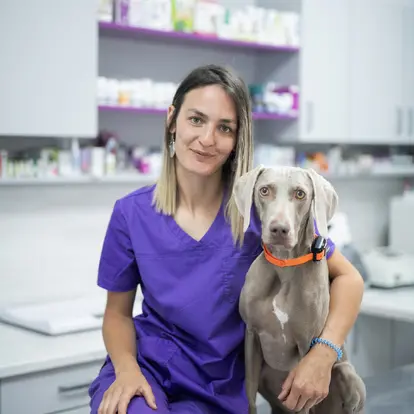Taking the first steps to open a veterinary practice is both exciting and daunting. While the passion for animal care drives many veterinarians to establish their own clinics, obtaining the necessary funding can be a considerable hurdle. Data from the American Veterinary Medical Association shows that the average cost to open a new veterinary practice ranges from $1 million to $1.5 million, depending on location and scale. The Small Business Administration (SBA) provides loans with favorable terms that can help mitigate these costs, but navigating the loan process can be complex without expert assistance.
Why SBA Loans Are Tailor-Made for Veterinary Startups
SBA loans offer distinct advantages for new veterinary practices, providing financial support with benefits such as lower down payments, extended terms, and competitive interest rates. Here is a breakdown of two primary SBA loan types suitable for veterinary practices:
SBA 7(a) Loans
SBA 7(a) loans are versatile and designed to support a broad range of business expenses, making them ideal for veterinary startups.
- Working Capital: Funds are available to cover day-to-day operating expenses.
- Equipment Purchase: Enable acquisition of essential diagnostic tools and machinery.
- Leasehold Improvements: Facilitates modifications and decorating of rented office space.
- Refinancing Existing Debts: Provides opportunities to consolidate existing high-interest loans.
SBA 504 Loans
For practices needing large, fixed asset purchases, SBA 504 loans are optimal, offering fixed-rate financing for long-term projects.
- Real Estate Acquisition: Enables the purchase of new buildings or land.
- Construction and Renovation: Funds are allocated for building or upgrading facilities.
- Large Equipment Purchasing: Financing is available for high-cost medical devices.
- Fixed-Interest Rates: Secures stable payments over the loan term with no surprises.
Challenges Veterinary Startups Face in Financing
New veterinarians encounter unique challenges when securing funding, which can affect practice launch timelines and operational setups:
- Build-Out Costs: Constructing a clinic, furnishing it with examination tables, waiting areas, and veterinary-specific infrastructure can rapidly escalate expenses.
- Equipment Purchases: Essential equipment such as x-ray machines, surgical tables, and diagnostic devices require significant upfront investment.
- Initial Staffing Costs: Initial payroll expenses, including salaries for veterinary technicians, receptionists, and administrative staff, must be covered.
- Regulatory Compliance: Obtaining the necessary permits and fulfilling health and safety requirements adds to the initial financial burden.
The Role of a Loan Advisor in Navigating SBA Financing
A Loan Advisor can act as a crucial partner in navigating the intricacies of SBA loan applications, offering veterinarians peace of mind and strategic support.
- Expert Financial Analysis: Advising on the best loan products and amounts needed based on precise financial forecasts and business plans.
- Streamlined Documentation Process: Assisting with preparing necessary documentation, including comprehensive business plans and profit forecasts.
- Access to Lender Networks: Utilizing established relationships with lenders to enhance approval chances.
- Negotiation Power: Securing favorable terms that align with the practice’s long-term financial goals.
Case Study: From Vision to Liberative Practice with SBA Support
Imagine Dr. Sarah Collins, a newly-qualified veterinary professional determined to open a state-of-the-art animal care facility in a bustling urban neighborhood. With her intricate business plan and upfront capital needs identified, Sarah sought SBA 7(a) loan assistance.
With the guidance of her Loan Advisor, Sarah was able to:
- Secure $750,000 in working capital to cover equipment purchases, leasehold improvements, and operating expenses.
- Finalize her dream clinic within a 12-month timeline, offering advanced veterinary services to the community.
- Launch with less financial strain, paving the way for immediate operation and sustainable growth.
Another initiative led by Dr. James Greene, who needed an SBA 504 loan to purchase and renovate a large facility in a rural setting, turned an existing property into a thriving veterinary hospital. This strategic move allowed him to:
- Obtain $1.3 million for real estate acquisition and renovation.
- Establish a standout practice offering specialized care in large animal and equine medicine.
- Experience a 30% increase in clientele within the first year due to expanded capabilities.
Making Strategic Choices for a Successful Practice Launch
Each veterinarian's journey is unique, but securing the right financial foundation is crucial for success. Whether opting for an SBA 7(a) loan's versatility or an SBA 504 loan's fixed-asset support, understanding these tools is fundamental. Partnering with an experienced Loan Advisor ensures tailored solutions that meet both regulatory and operational needs.
For veterinary professionals poised to take the next step, exploring SBA loans with professional advisory support can transform your vision into a successful, sustainable reality. Secure your part of the future in veterinary care with confidence and clarity.
Navigating the Franchise Frontier: A Ten-Step Guide to Acquiring an Existing Franchise Business
This guide offers an in-depth, step-by-step approach to acquiring an existing franchise, emphasizing the importance of financial readiness, thorough market research, and diligent evaluation of franchise performance. It highlights key considerations, potential red flags, and the invaluable support…
Read Navigating the Franchise Frontier: A Ten-Step Guide to Acquiring an Existing Franchise Business
A Guide to Positioning Your Small Business for Sale with a Business Advisor
Approaching retirement, small business owners can enhance the success and value of their business sale with strategic preparation and professional guidance. This article outlines key challenges and provides five essential steps to position a business for sale, emphasizing the value of operational…
Read A Guide to Positioning Your Small Business for Sale with a Business Advisor
Navigating the Tightrope: Challenges Small Businesses Face When Securing Loans
Small businesses face significant hurdles in securing loans, such as limited credit history, insufficient collateral, complex application processes, high-interest rates, and inadequate financial documentation. These challenges lead to half of loan applications being rejected, complicating access…
Read Navigating the Tightrope: Challenges Small Businesses Face When Securing Loans



